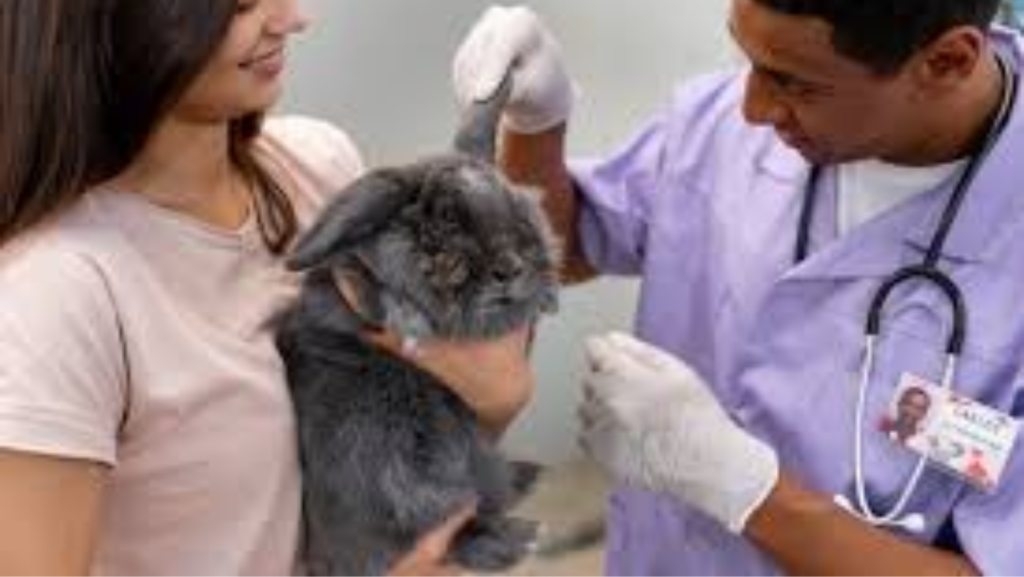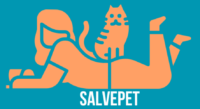Preventive Veterinary Medicine is an essential part of caring for our pets. Just like humans, dogs and cats need regular health attention to prevent diseases and ensure a long, healthy life.
Pet owners play a crucial role in this process, being responsible for seeking information and making informed decisions about their pets’ care.
Prevention is key to a healthy life. Many common diseases in pets can be avoided with simple and effective practices. With the increasing awareness of animal health, it’s vital for pet owners to know the appropriate preventive care.
In this article, we will discuss 10 valuable tips for Preventive Veterinary Medicine that will help you keep your furry friend in great shape.
Additionally, we offer an extra tip that includes useful resources to ensure you have access to all the necessary information about caring for your pet.
Let’s explore how Preventive Veterinary Medicine can transform the health and well-being of your dog or cat, providing peace of mind for you and a happier life for them.
How to Keep Preventive Veterinary Medicine Up to Date?

Behavior Monitoring
Keep an eye out for changes in your pet’s behavior. Any alteration, such as loss of appetite, lethargy, or changes in grooming habits, may be a sign that something is wrong.
If you notice any abnormal behavior, consult your veterinarian as soon as possible.Regular monitoring of your animal’s behavior is an important part of Preventive Veterinary Medicine and can help detect health issues before they become more serious.
Regular Veterinary Check-ups
The first and most important tip is to ensure your pet receives regular veterinary check-ups. Often, pet owners believe that if their animal seems healthy, there’s no need to take them to the vet.
However, routine check-ups are essential for identifying health issues before they become serious. During these visits, the veterinarian can perform physical examinations, blood tests, and other diagnostic tests that help detect hidden conditions.
Recommendations generally suggest that dogs and cats have an annual check-up, but older animals or those with specific health conditions may need more frequent visits. During these visits, discuss any concerns you have about your pet’s behavior or health.
Stay Current on Vaccinations
Vaccination is a fundamental part of Preventive Veterinary Medicine. Vaccines protect animals against various contagious and potentially fatal diseases.
It’s crucial to follow the vaccination schedule recommended by your veterinarian, which varies based on your pet’s age, lifestyle, and overall health.Dogs and cats need to be vaccinated against diseases like parvovirus, distemper, hepatitis, and rabies, among others.
In addition to protecting your own animal, vaccination also helps safeguard the community by preventing disease outbreaks. Don’t hesitate to ask your veterinarian about additional vaccines, especially if your pet frequently interacts with other animals.
Balanced Diet
A balanced diet is the foundation for your pet’s health. Proper nutrition is vital for growth, development, and the maintenance of overall health in animals. Choose a high-quality food formulated specifically for the age and size of your dog or cat.
Consult your veterinarian to determine the right amount and type of food for your pet.Additionally, avoid giving homemade foods or leftovers from your table, as many human foods are toxic to dogs and cats.
Introduce new food options gradually and always watch for any allergic reactions or digestive issues.

Regular Exercise
Regular exercise is vital for your pet’s physical and mental health. Dogs, in particular, need daily activities to stay healthy and happy. Lack of exercise can lead to obesity, destructive behavior, and stress.
Take your dog for daily walks and engage them in games that stimulate their energy and intelligence.
For cats, although they may not require walks, it’s important to have opportunities to play and exercise at home. Interactive toys, scratching posts, and playtime with their owners help keep cats active and mentally stimulated.
Dental Care
Oral health is often overlooked but is a crucial aspect of Preventive Veterinary Medicine. Dental diseases can lead to serious health problems, including infections and heart disease.
Brush your pet’s teeth regularly and provide treats and toys that help clean their teeth. Consult your veterinarian about the frequency of professional dental cleanings, which should be done annually or as needed.
Pay attention to signs of dental problems, such as bad breath, difficulty eating, or red gums. Early detection of dental issues can prevent more serious complications.
Parasite Control
Parasites, such as fleas, ticks, and worms, can cause serious health issues for pets. Use preventive medications as recommended by your veterinarian.
Additionally, maintain hygiene in the environment where your pet lives by regularly washing their bedding, toys, and other items that may harbor parasites.
Parasite control is not just a health issue; it can also prevent discomfort and irritation. Always monitor your pet after walks in areas known for parasite infestations.
Safe Environment
Creating a safe environment is essential for your pet’s health and safety. Remove toxic plants, small objects that could be swallowed, and hazardous chemicals. Secure windows and balconies to prevent accidental falls.
Additionally, provide an appropriate space for your animal to rest and play, ensuring they have a stimulating and safe environment. By doing this, you minimize the risk of accidents and ensure that your pet has a healthy and safe home.
Socialization
Socialization is a vital component of developing a healthy and balanced pet. From a young age, dogs should be exposed to different people, animals, and environments. This helps prevent aggressive and fearful behaviors.
For cats, socialization may include introducing them to new environments and people, which can help reduce anxiety and stress. Interacting with other animals and people contributes to more positive behavior and better adaptation to various situations.
Identification
Proper identification is fundamental for your pet’s safety. Ensure that your dog or cat always wears a collar with an identification tag containing your name and phone number.
Additionally, consider microchipping, which is a permanent form of identification that can help reunite you with your pet if they get lost.
In case of loss, microchipping significantly increases the chances of recovering the animal. Always check to ensure that your contact information is up to date.
How Preventive Veterinary Medicine Benefits Pet Owners

Preventive Veterinary Medicine not only benefits the health of pets but also brings a range of advantages to their owners. By adopting
preventive care practices, pet owners can enjoy a more peaceful and fulfilling life alongside their pets.
Let’s explore some of the ways Preventive Veterinary Medicine can be advantageous for pet owners.
Long-Term Cost Reduction
One of the main benefits of Preventive Veterinary Medicine is the reduction of costs related to veterinary treatments. Many diseases can be avoided with proper care, such as vaccinations and parasite control.
By investing in your pet’s preventive health, you can avoid significant expenses related to the treatment of serious diseases that could have been prevented. This not only helps save money but also provides greater peace of mind.
Less Emotional Stress
Seeing a pet suffer from illnesses or health problems can be a distressing experience for owners. Preventive Veterinary Medicine helps detect issues early, which can prevent disease progression and unnecessary suffering for pets.
When owners know they are taking proactive measures to maintain their pets’ health, it reduces the stress and anxiety associated with worrying about their well-being.
Increased Lifespan and Quality of Life
Pets that receive proper preventive care generally have a longer lifespan and better quality of life. Regular care helps identify and treat health problems before they become serious.This means owners can enjoy more time with their pets and see them live an active and healthy life filled with happy moments.
Improved Owner-Pet Relationship
Owners who invest in Preventive Veterinary Medicine often become more involved in the health and well-being of their animals.
This leads to a greater understanding of their pets’ needs and strengthens the bond between owner and animal. By actively participating in their pet’s health, owners can create a safer and more loving environment, resulting in a more harmonious relationship.
Increased Awareness of Animal Health
When owners seek information about Preventive Veterinary Medicine, they become more aware of their pets’ health needs. This includes understanding the importance of vaccinations, proper nutrition, exercise, and dental care.
This awareness not only benefits the animals themselves but can also encourage other owners to adopt preventive health practices, creating a more informed community about pet care.
Peace of Mind for Owners
Preventive Veterinary Medicine provides peace of mind for owners, as they know they are doing everything possible to protect their pets’ health.
Knowing that you are taking steps to prevent diseases and are in regular contact with a trusted veterinarian reduces uncertainty about your pet’s health. This peace of mind allows owners to enjoy more time with their furry friends.
Access to Information and Resources
Owners who engage with Preventive Veterinary Medicine have access to a variety of resources and information about pet care.
This includes guidance on nutrition, training, behavior, and much more.Access to accurate and up-to-date information helps owners make informed decisions and provide the best for their pets.
Prevention of Infectious and Contagious Diseases
Preventive Veterinary Medicine also helps prevent the spread of infectious and contagious diseases among animals.
By vaccinating and monitoring their pets’ health, owners play an important role in protecting public health.This is especially relevant in communities where animals frequently interact, such as in parks and kennels.
Better Management of Chronic Diseases
For animals that already have chronic health conditions, Preventive Veterinary Medicine can help manage these conditions more effectively.
Regular check-ups and follow-ups assist in adjusting treatments, monitoring progress, and ensuring that the animal receives the necessary support to live well.
Awareness of the Importance of Animal Health
Finally, the practice of Preventive Veterinary Medicine helps raise awareness about the importance of animal health in general.
When owners talk about their preventive care with friends and family, they disseminate valuable information and may inspire others to prioritize the health of their own pets.
Preventive Veterinary Medicine plays a crucial role in the health and well-being of our pets, providing significant benefits for both animals and their owners.
By adopting preventive care practices such as regular check-ups, vaccinations, parasite control, and balanced nutrition, owners not only protect the health of their furry friends but also reduce costs, decrease emotional stress, and enhance quality of life.
Moreover, these practices strengthen the bond between owner and pet, promote awareness of animal health, and ensure a safe and healthy environment.
Investing in Preventive Veterinary Medicine is a commitment that brings lasting rewards, ensuring that our pets live long, healthy, and happy lives.

Frequently asked questions
What is Preventive Veterinary Medicine?
Preventive Veterinary Medicine is a set of practices and care aimed at preventing diseases in pets, ensuring their health and well-being throughout their lives.
Why is Preventive Veterinary Medicine important?
It is important because it helps prevent diseases, prolongs pets’ lives, and improves their quality of life, while also reducing costs associated with veterinary treatments.
How often should I take my pet to the veterinarian?
Generally, annual check-ups are recommended for healthy dogs and cats, but older pets or those with specific health conditions may require more frequent visits.
What vaccinations does my pet need?
Essential vaccinations include those against parvovirus, distemper, hepatitis, and rabies, but vaccination schedules should be tailored to your pet’s age, lifestyle, and health.
How can I ensure a balanced diet for my pet?
Choose high-quality pet food appropriate for your animal’s age and size, and consult your veterinarian for guidance on the right quantity and type of food.
What is the importance of parasite control?
Parasite control, such as for fleas and ticks, is essential for preventing diseases that can affect your pet’s health and avoiding discomfort.
How can I maintain my pet’s dental health?
Brush your pet’s teeth regularly and provide treats that help with dental cleaning. Regular veterinary check-ups for professional dental cleanings are also recommended.
What should I do if I notice changes in my pet’s behavior?
Any changes in behavior, such as loss of appetite or lethargy, should be discussed with a veterinarian, as they may indicate health problems.
How does socialization influence my pet’s health?
Socialization helps prevent aggressive and fearful behaviors, making the pet more balanced and comfortable in various situations.
What is the best way to identify my pet?
In addition to a collar with an identification tag, microchipping is an effective and permanent form of identification that increases the chances of recovery if the animal gets lost.
How can I keep my pet active?
Provide daily exercise, such as walks and playtime, tailored to your pet’s breed and age to ensure their physical and mental health.
What signs indicate health problems in pets?
Look for signs like bad breath, difficulty eating, changes in hygiene habits, and abnormal behavior. These can be indicators of health issues.
How can I find a reliable veterinarian?
Ask for recommendations from friends or family, check online reviews, and look for veterinarians who meet your pet’s specific needs.
What is homemade pet food and is it safe for my pet?
Homemade pet food refers to preparing food for your pet at home. However, many human foods can be toxic to dogs and cats; consult a veterinarian before making this transition.
What resources are available for pet owners on Preventive Veterinary Medicine?
Many veterinarians offer educational materials, and there are various reliable online sources that provide information on preventive care and animal health.
